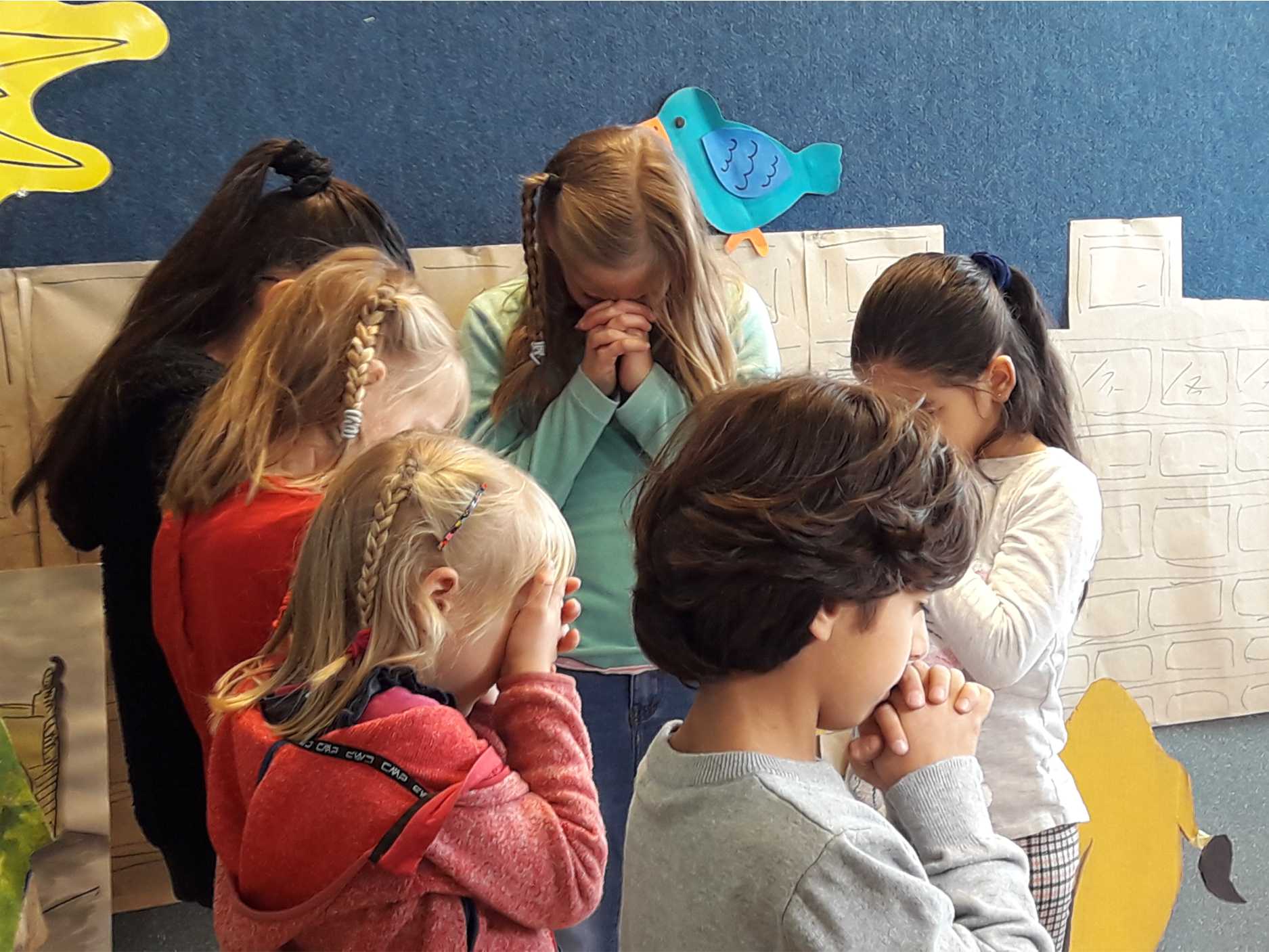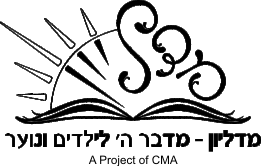
“I call on you, my God, for you will answer me; turn your ear to me and hear my prayer.”
Psalms 17.6
Have you ever had a case like this?
“Who wants to pray for Lisa who has an injured knee?”
Joel raised his hand with great enthusiasm. He really likes to pray in every class and always raises his hand. He’s even disappointed when they won’t let him pray.
“Thank you, Joel, please pray. ”
“Yeshua, thank you that we’ve come to church today,” Joel began, “thank you for the T-Rex that my parents will buy me on my birthday next week. Amen. ”
Joel completely forgot about Lisa! Joel was also the only child, in fact, who wanted to pray.
Why does this happen? Why is it important to teach children to pray at an early age? How can we make prayer more interesting? Let’s talk a little bit about these issues.
We all agree that prayer is very important. It is usually the responsibility of parents to teach their children how to pray, but we who work with them every week also have a responsibility to teach them what prayer is, and to show them that prayer is part of everyday life. It’s important to explain to them that we’re not just teaching them about what prayer is, but how to pray and that one can pray anytime and anywhere.
What is prayer?
Prayer is a conversation with God. Even very young children who still don’t understand what they’re saying can pray. God even knows the hearts of these children. It is important for children to know that prayer is not just a set of sentences that need to be said at a particular time and that is it; prayer is a conversation with God that is part of building a personal relationship with Him. A ten-year-old boy described it in a very beautiful way: “It’s like I hear about the prime minister every day on TV, radio and the internet, but I don’t really know him. I have never met him.”
Personal example
“Deeds speak louder than words“. Have you ever heard that phrase? We’ll have more influence on the kids if they see us praying. What does this mean? It means we will pray at the beginning of the lesson, we will pray at the end of the lesson, when a child comes and tells us something we will pray with him about it, when we talk to a friend and there’s a need we’ll pray for him, even in the middle of the hall in church in front of the children. Our approach to prayer will “infect” the children and will also become their attitude. When you pray with the children do not forget to include the important ingredients of prayer: to thank the Lord for something related to Him (for example, that He sees all or that He knows all), to give thanks for answers to prayers and to bring before Him prayer requests.
Habits
We always hear about the importance of habits. Habits are also important when it comes to prayer. They help in reminding us to pray, they help in building our relationship with God. Habits formed in the first years of life will usually continue with the children throughout their lives, and even if they decide to leave the Lord, in any case this need to speak to God will arise in times of distress.
Encourage them to pray at regular times such as before getting up from the bed in the morning, before going to sleep, etc.
Answers to prayer
It is also very important to share answers to prayer. Tell them about answers you’ve had to prayer and also encourage the children to talk about answers to prayer requests they’ve had, especially those you’ve prayed for together. It’s encouraging to see that we’re not just talking to God, but that He really pays attention and answers prayer, even if sometimes we don’t see the answer right away.
How do we encourage the children to pray?
Preschool age – 9 years old
- Ask them for what things they’d like to thank God and pray. For every request or giving of thanks, ask one child to pray. To help the children remember what they are supposed to pray for, one of the teachers in the Beit Hesde congregation in Haifa prepared prayer cards (she shares them with you – you can find them on our website). Give the child the card that best suits what he or she will be praying about; before it is his turn to pray ask him to look at the card and remind him of the thing he is supposed to pray for.
- At the beginning of each prayer say, “Let’s fold our hands and close our eyes.” Explain to the children that it is important to do this so that we can concentrate and think about God while we pray.
- At the beginning of each class, choose another child in the class, invite him to the front and ask him how you can pray for him. Hug him and ask a number of children in the class to pray for him, and eventually you pray for him also.
10 years of age or older
- Talk about praise reports and prayer requests, and then divide them into pairs so that the children can pray one for another.
- After discussing the praise reports and prayer requests, pass from one child to the next so that each one can pray. When one child finishes praying, have him place his hand on the shoulder of the child sitting next to him, and that child can choose if he will pray or not, and afterwards that child places his hand on the shoulder of the next child, and so on.
- Bring a ball with a picture of a globe on it to the class. Throw the ball to one of the kids. When he catches it, he will place his finger, randomly, on the ball and pray for the children in the same country he pointed to (salvation, accessibility to God’s Word, protection, etc.).
- Hang a map of the Land of Israel in the classroom, and let the children randomly point to a place on the map and pray for the children there (salvation, protection, that there would be children that would tell them about Yeshua, that the children who believe will have the courage to talk about Yeshua, etc.).
- Pray for the youth groups of the different churches.
- Encourage the children to come to prayer meeting with their parents.
- Write down the prayer requests that came up during the lesson on notes. Fold them and place them in a hat. At the end of the lesson, have each child that would like to participate choose a note and take it home and pray for the request during the week.
- Encourage the children to share prayer requests on the youth group’s WhatsApp and pray about them.

